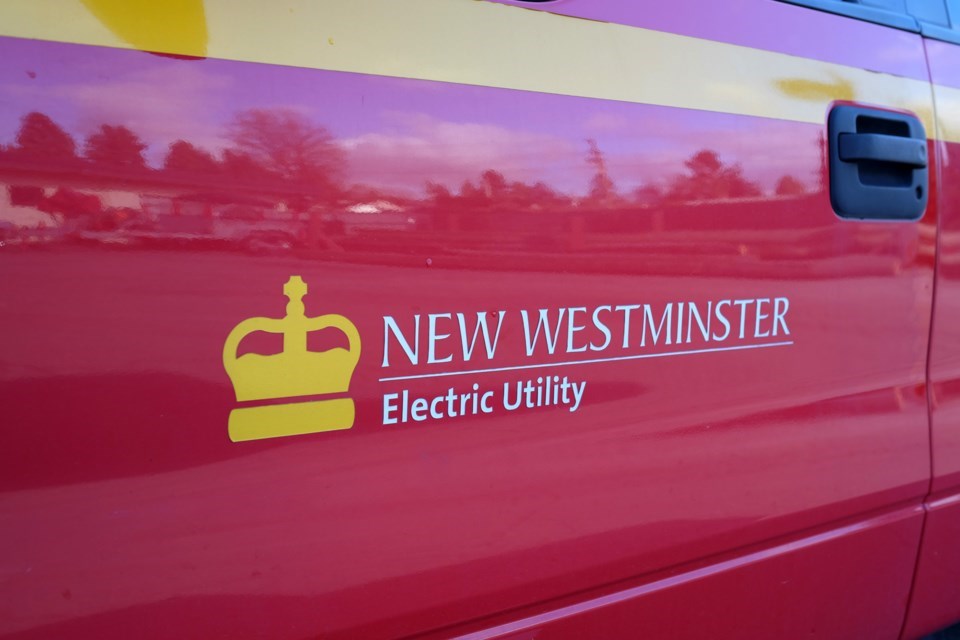A New Westminster resident continues to question if customers are getting the best bang for their buck with the city’s electric utility.
Rick Folka, who ran with the New West Progressives in the October 2022 civic election, appeared at city council meetings in November and December to voice concerns about the costs of electricity available through the New Westminster electric utility.
“My request of council is at the upcoming council strategic planning session, consider the impacts that property taxes, utility rates and other service fees have on residents of New Westminster, in particular those on low, fixed-income, young families,” he recently told city council. “And the second request is: consider the impacts the debt burden will have on our children and our grandchildren.”
Folka believes the New Westminster electric utility’s rates result in most citizens paying more than they would if they received their electricity from BC Hydro. He noted BC Hydro has a two-tiered rate structure, but the city’s electrical utility has one rate for residential users.
According to BC Hydro’s website, “customers are charged one rate for electricity up to a certain threshold in each billing period, and a higher rate for all electricity use beyond that threshold. This ‘stepped’ rate is designed to encourage conservation.”
Folka said a two-tiered system of rates incentivizes and encourages conservation, something that would particularly benefit people who have with low or fixed incomes and young families.
“Those in apartments and condos, those with lower incomes, young families, fixed incomes, appear to be most unfavourably impacted,” said Folka, a chartered accountant. “New Westminster’s utility rate structure favours those who consume more, in direct contradiction to the city's Seven Bold Steps.”
In addition to the rates, Folka has voiced concerns about the various charges on electrical bills, such as a climate action levy. He’s also concerned about the debt the city is accumulating to finance infrastructure related to the electrical utility.
Last July, the City of New Westminster announced it had sold British Columbia Low Carbon Fuel Standard credits earned during the 2013-2020 period to Elbow River Marketing Ltd. for $26 million. The city stated these funds had been used to establish a new climate action reserve fund in the city’s budget to support New Westminster’s commitment to a zero carbon future.
Folka is questioning why the city borrowed $25 million for the new Queensborough substation project, rather than using the $26 million it received from selling low-carbon fuel standard credits. He fears the City of New Westminster’s decisions to borrow millions to finance the substation, as well as the new aquatic and community centre, will make it difficult for the city to build any new infrastructure in future years.
Rod Carle, general manager of the city’s electric utility, said New Westminster charged identical rates as BC Hydro for many years. He said that lasted until 2008, when BC Hydro introduced a two-step rate.
After doing some analysis, he said staff decided it was better overall for utility users to stay with a flat rate.
According to Carle, BC Hydro has always had a rate rider, but that number has “bounced all over the place” through the years.
“They've done five per cent; they've gone to four per cent. They actually have now eliminated the rate rider, but there is discussion that they're going to be coming back out with that,” he said. “So it's very difficult for cities trying to look at a long-term objective on rate setting.”
Mayor Patrick Johnstone said the issue of rate-setting policies is part of an ongoing conversation that will be taking place at the electrical utility commission, which will be making recommendations to council.
In 2016, the City of New Westminster Electrical Utility celebrated its 125th anniversary, having been founded on Jan. 2, 1891 as the Light Department. The electric utility has an electrical supply agreement with B.C. Hydro, which allows it to buy electricity at a wholesale cost and sell it to municipal customers.
2023 rates
In late December, council approved utility rates for 2023 - seven per cent increases for both the water and sewer rates, a 14 per cent increase for the solid waste rate and a 2.8 per cent increase for the electrical rates.
At a Nov. 28 workshop on the city’s utility budgets for 2023, staff suggested council consider keep a few things in mind regarding the 2023 electrical operating and capital budget. This included: projected 2023 increases in the cost of purchasing power from BC Hydro ($1 million); 2023 increases related to fixed costs and salary increases ($0.2 million); 2023 proposed capital spending ($23.9 million); 2023 new service enhancement requests of $437,627 (including items related to the Queensborough substation and an apprenticeship program to address a shortage of powerline technicians); 2023 increase in debt-servicing costs of $2.1 million due to increase of $25 million in borrowing at end of 2022 related to the Queensborough substation project; and a climate levy at a rate of 3.5 per cent of electrical billings. (The climate action levy aims to help fund the city’s response to the climate emergency.)
While considering the utility rates, council considered two motions from Coun. Daniel Fontaine related to the electrical rates. Ultimately, a major of council supported this year’s 2.8 per cent increase, which took effect on Jan. 1, 2023.





